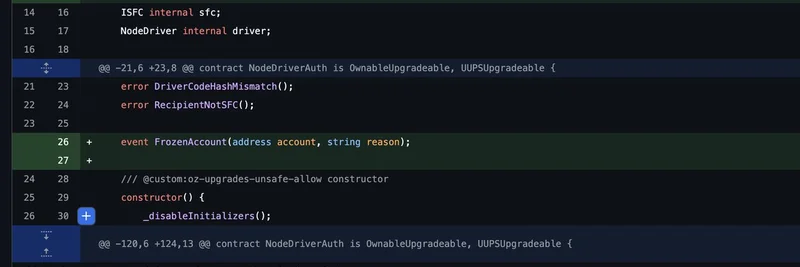In the fast-paced world of crypto, hacks are unfortunately part of the landscape, but how chains respond can make all the difference. Recently, a massive $128 million exploit hit Balancer, a popular decentralized finance (DeFi) protocol, sending shockwaves through the community. Haseeb Qureshi, managing partner at Dragonfly Capital, shared some insightful thoughts on X (formerly Twitter) about how various blockchains stepped up to protect their users.
Haseeb highlighted three notable responses: Berachain's validators halted the entire network since Balancer is deeply integrated into their ecosystem. On Polygon, validators censored the hacker's transactions to effectively freeze the funds in place. And Sonic Labs went a step further by adding new functionality to freeze and zero out the hacker's account directly at the chain level.
This all stems from a quoted post by developer Settee, who dove into Sonic's GitHub repo. They explained that Sonic implemented a security policy allowing the foundation to freeze specific wallet accounts via a new smart contract with a 'freeze' method. This only affects the native $S token, leaving other ERC-20 tokens untouched. Here's a look at the code snippet Settee shared:
What makes this fascinating is the shift away from the old "code is law" mantra—the idea that smart contract code should be immutable and untouchable, no matter what. Haseeb argues that for smaller ecosystems, prioritizing safety and community protection is the smarter play. After all, in nascent chains like these, building trust and retaining users often trumps rigid decentralization principles.
But let's break it down. Decentralization means power is spread across many parties, like validators or nodes. If enough of them agree, they can intervene—like freezing assets in a hack. Haseeb clarifies that the real debate here isn't about decentralization but immutability: the notion that once code is deployed, it shouldn't be altered. In replies, users pointed out that true immutability is rare outside of giants like Bitcoin or Ethereum mainnet, and smaller chains should absolutely protect users if they can.
For meme token enthusiasts, this is particularly relevant. Many meme coins launch on emerging chains like Berachain, which draws from bear-themed memes and has a fun, community-driven vibe. Berachain's quick halt shows how integrated DeFi tools can be in these ecosystems, and their response protected what could have been massive losses for holders. Similarly, if you're farming or trading meme tokens on Polygon or Sonic, knowing the chain can step in during crises adds a layer of security—especially when exploits target liquidity pools or bridges, common in meme trading.
Of course, this sparks debates. Some argue it erodes trust if chains can "steal" funds, even from hackers. But as Haseeb notes, only Sonic truly zeroed out the account, and these actions stem from social consensus: what the community agrees is best for long-term health. It's a reminder that blockchain isn't just tech—it's a social system too.
Looking ahead, these events could influence how meme token projects design their security. Chains might adopt more flexible policies, like ledger subjectivity for recourse, as one reply suggested. If you're building or investing in meme coins, keep an eye on how chains handle exploits—it could save your portfolio.
For more on crypto hacks and meme token strategies, check out our knowledge base at Meme Insider. What do you think—should chains intervene in hacks, or stick to code is law? Share your thoughts!


